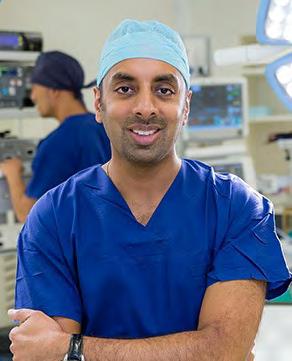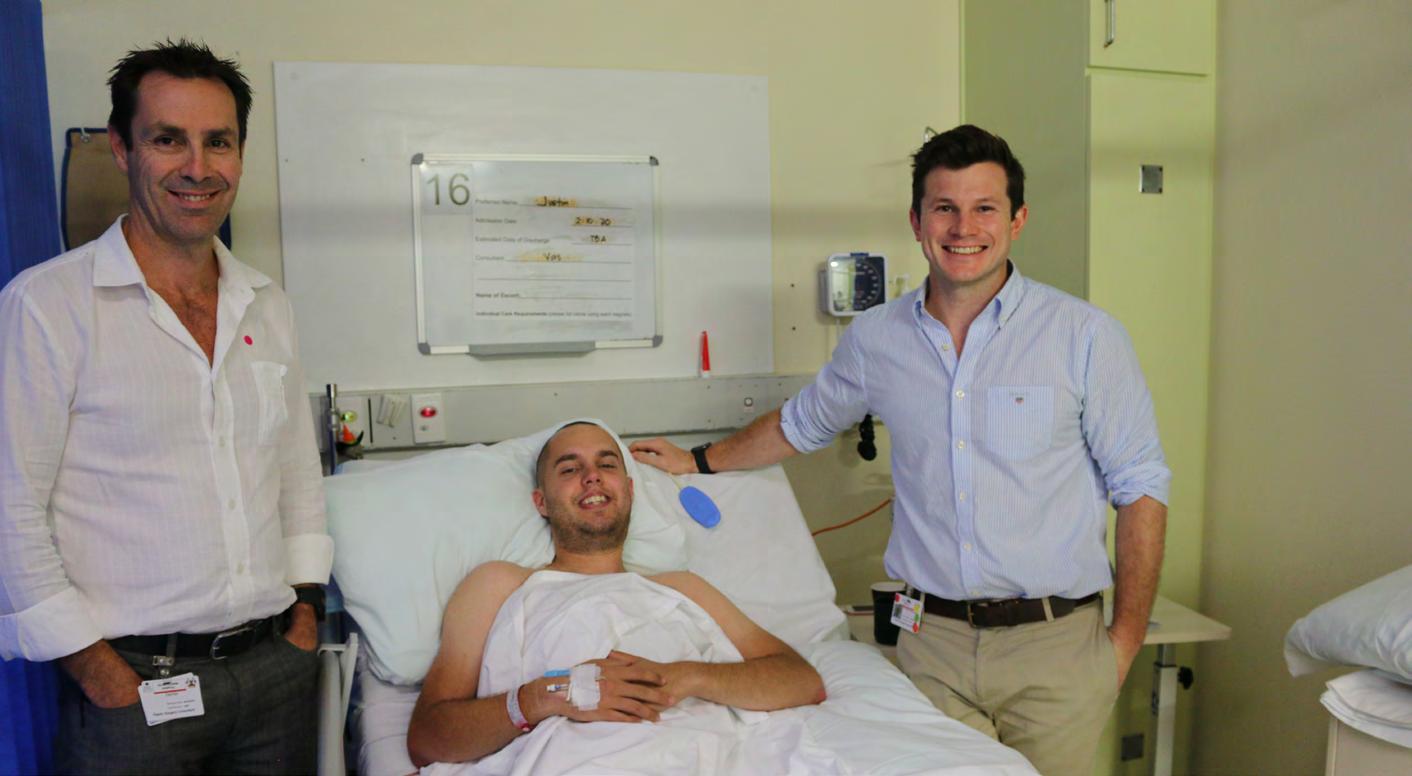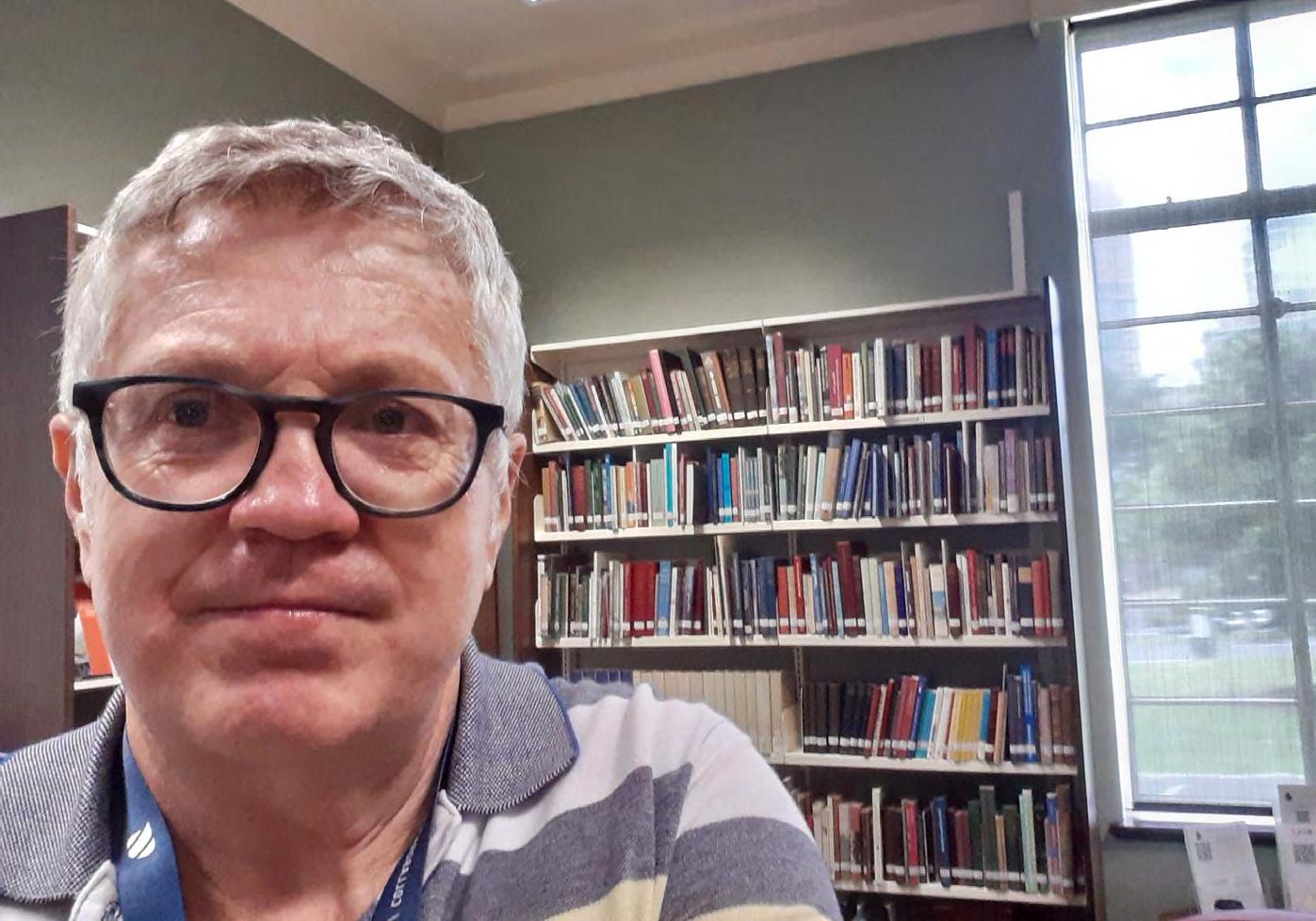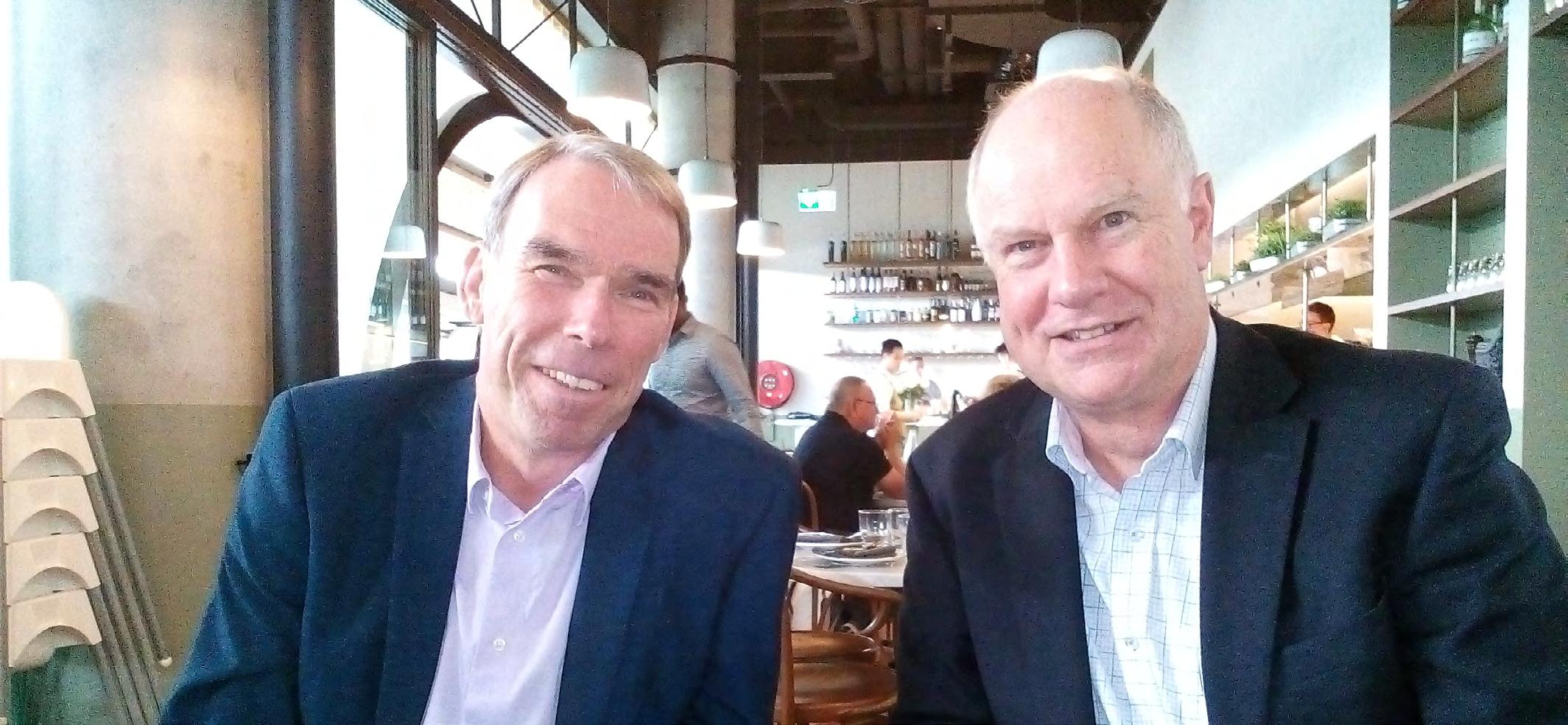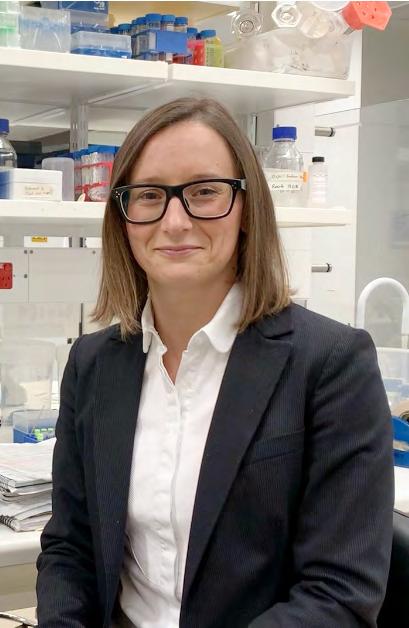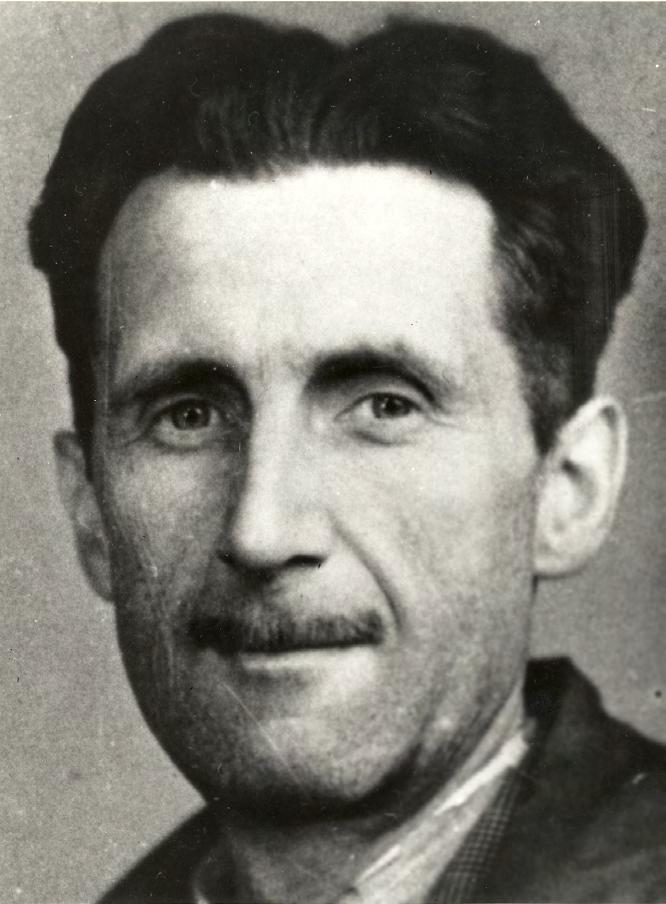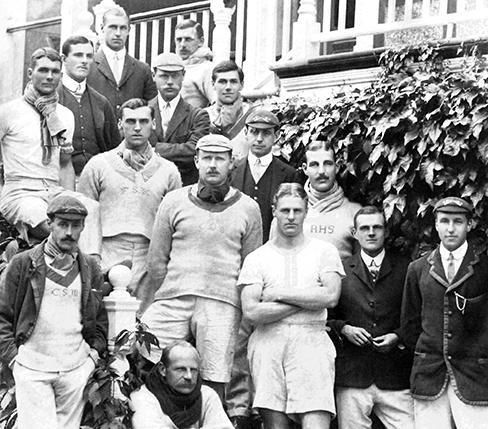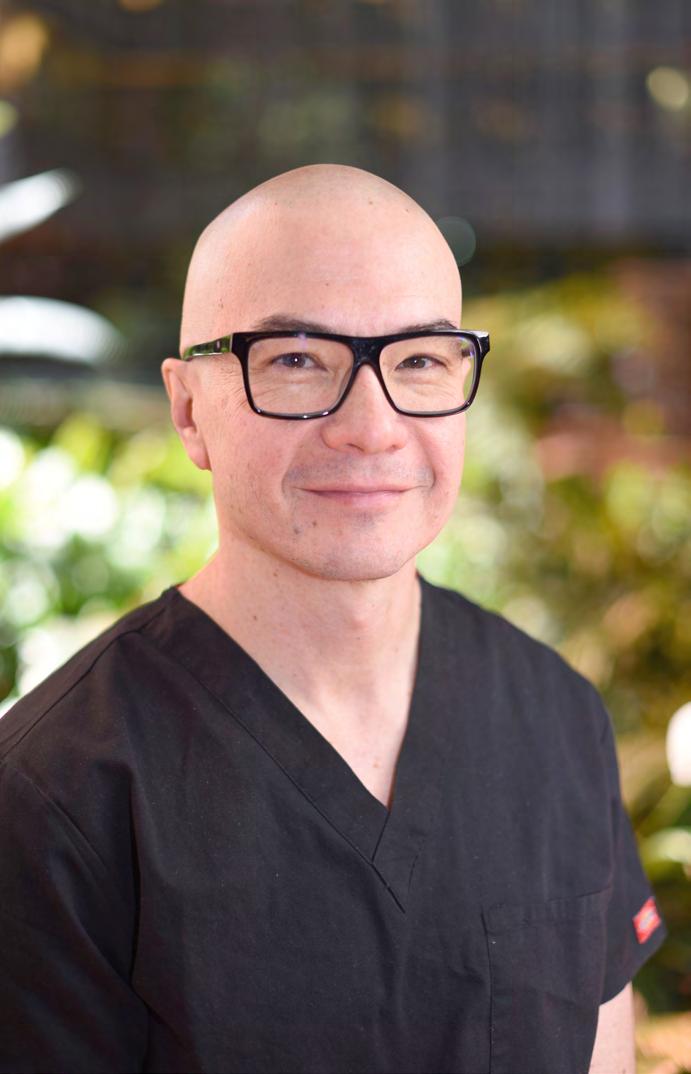
9 minute read
Supervisors pay it forward
SET/SIMG Supervisors of the Year pay it forward for future generations
Mr Dilhan Cabraal (right) is presented with his award by Professor David Fletcher.
Advertisement
The Royal Australasian College of Surgeons (RACS) appreciates and values the work our supervisors do, and we are constantly working to support these hardworking surgeons, who find value in giving back to their Trainees. This could be because of their own educational experiences, the chance to continue learning, or watching their students flourish. When one teaches, two learn Teaching works both ways. The teacher often finds they learn while explaining a concept or when answering questions. When you teach, you open yourself up to different points of view, and take on a new perspective, fostering creativity and critical thinking for you and your student. “Surgical education is a way of paying it forward for our future generations of surgeons just as was done for us,” said Professor Peter Friedland. “It is a unique opportunity to contribute one’s own knowledge and keep learning simultaneously.” Mr Richard McMullin has found teaching offers unplanned moments of exchange where one can both teach and learn. “Almost every clinical encounter, X-ray image and pathology result can be a way into a discussion that can lead into general principles, related examples, patterns and pitfalls,” he said. Mr Simon McMahon agreed. “My experience is that teaching is invaluable and, for me, very much a win-win,” he said. “I always seem to learn much more than the Trainees and interacting with the junior colleagues is generally a lot of fun.” Learning the value of a dedicated teacher Many of the surgeons became supervisors after being inspired by their own exceptional supervisors. “As a junior doctor, I always had very dedicated consultants taking time to teach me, which inspired me to become a teacher after I became a consultant,” Mr Dilhan Cabraal said. Associate Professor Sivakumar Gananadha had a similar experience, and now views his involvement in surgical education as a way to give back. “During my surgical training I was inspired by surgeons who were amazing teachers, with their ability to teach and explain with such clarity and deep understanding of the surgical techniques,” he said. “These surgeons have had a lasting impact on my training and my surgical career.” Giving back Giving back and sharing Trainees’ successes is a major source of pride for supervisors. “Students, residents and Trainees always appreciate the teaching they have received,” explained Associate Professor Gananadha, “and it is satisfying to know you are helping educate the next generation of surgeons.” Mr Cabraal echoed this sentiment. “I find teaching and supervising registrars a highly rewarding experience,” he said. “Recognising the different needs of registrars and helping them to overcome these is a very satisfying experience.” “You can make an enormous difference to students, residents and Trainees as a role model,” Professor Friedland said. “In turn, the personal reward you experience will keep invigorating you.” Each year the Academy of Surgical Educators recognises a SET Supervisor/ SIMG Supervisor of the Year. This is awarded in each state or territory of Australia and New Zealand, where an appropriate candidate has been nominated. Do you have a supervisor you want to recognise? Nominations for 2021 Educator of Merit awards will open in February next year. See the next issue of Surgical News for more information. RACS has a new Supervisor Support Hub. For resources, policies, interviews and more go to surgeons.org/Fellows/for-educatorstrainers/supervisor-support-hub. We support supervisors through the Academy of Surgical Educators (ASE). The Academy’s purpose is to help support and develop all who are interested in surgical education. Academy membership is open to all supervisors and is free. Find out more at surgeons.org/Fellows/for-educatorstrainers/academy-of-surgical-educators.
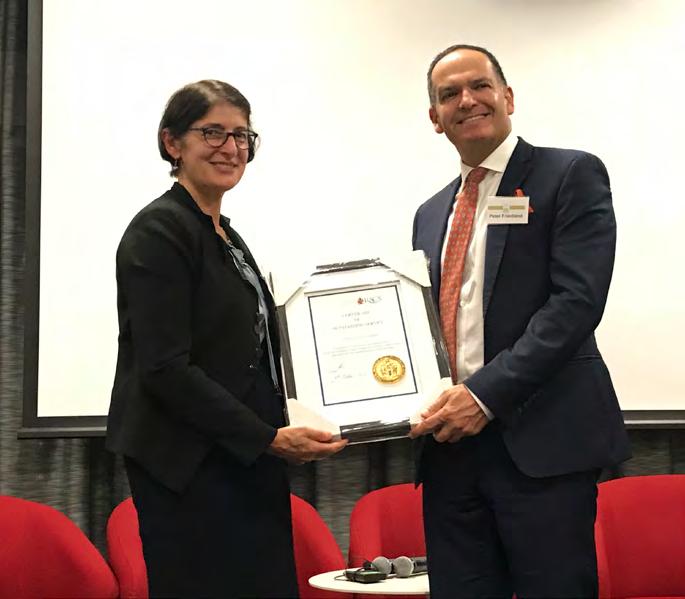
The Younger Fellows mentoring program
The Younger Fellows mentoring program, which takes place each year, has been running since 2017. It pairs up Royal Australasian College of Surgeons Younger Fellows (Fellows in their first 10 years of service) with more experienced surgeons so they can share their ideas, expertise and advice. The mentor–mentee relationship more often than not evolves into a reciprocal relationship of mutual sharing and support – a space to share immediate challenges and ideas for the future. We asked a number of Fellows who have taken part in the program to share their experiences. Mentor Mr Darren Katz and mentee Mr Kenneth Buxey Mr Katz is a urologist from Melbourne. I have always enjoyed the mentorship and teaching aspect of surgery, and so I was eager to be a Royal Australasian College of Surgeons (RACS) mentor to a surgical colleague. I started mentoring RACS Fellow Ken Buxey in 2018. Having gone through the stages of building a large private practice from scratch, the mentoring program facilitated sharing this experience, including the aspects that have gone both right and wrong. By imparting my knowledge, I hoped to help Ken grow his private practice in a more expeditious way. It informed my practice as a surgeon too. As we talked through the various aspects of private practice, it re-emphasised to me the importance of ensuring good and timely communication with not only patients, but with staff,
referrers and colleagues. Mr Buxey is a general surgeon from Melbourne. I was initially made aware of the mentoring program via email contact from the College. I indicated I would be interested in participating and was paired up with Darren. The best part of the program is having the opportunity to get advice from someone who has been in specialist practice for about five years prior to you becoming a consultant yourself. You don’t get any formal training or advice on how to establish practice or work as a consultant, and so it is invaluable to have a resource to discuss these things with you. Someone who has a better idea of what some of the challenges are and how best to overcome them. It has been particularly helpful since Darren has a well-established practice in the same hospital that I am now practising in, which means I feel very supported there. Although I am specialised in colorectal surgery and Darren is a urologist, these two specialties actually intersect often and are quite complementary – even to the point where one day we may work on a case together!
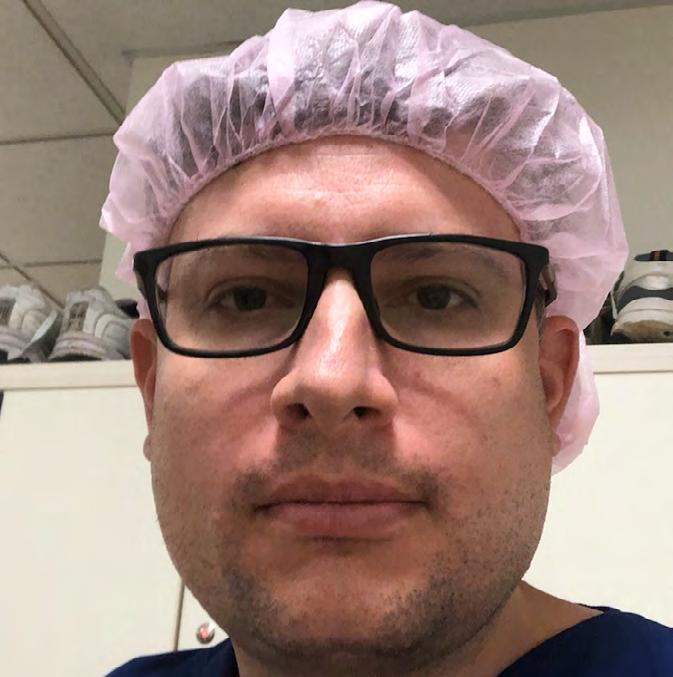
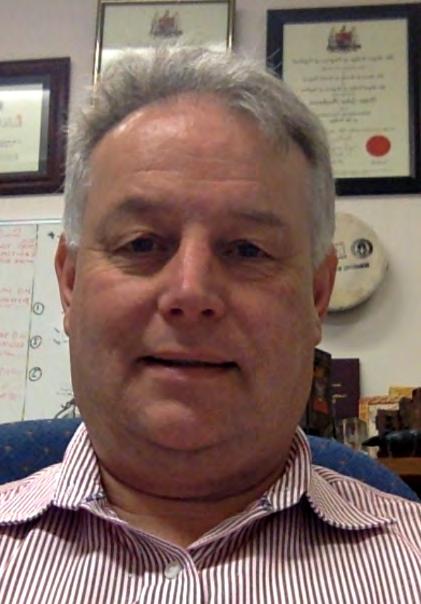
Professor Peter Anderson Professor Anderson is a plastic and reconstructive surgeon from Adelaide. A fantastic part of the RACS mentoring program was realising that the process could be mutually beneficial. As a mentor, I have learnt to appreciate that, while some training issues remain the same, other issues facing surgical Trainees are different to my own experience. I discovered that mentees are very appreciative of the opportunity to discuss sensitive workplace issues with an outside trusted adviser, who is independent of both the training unit and the local processes of job progression, but who can facilitate a considered review of their options in relation to the big picture and their longterm goals. Although mentoring with an interstate colleague undoubtedly had geographical challenges, mutual goodwill was supplemented with demonstrated reliability, and the use
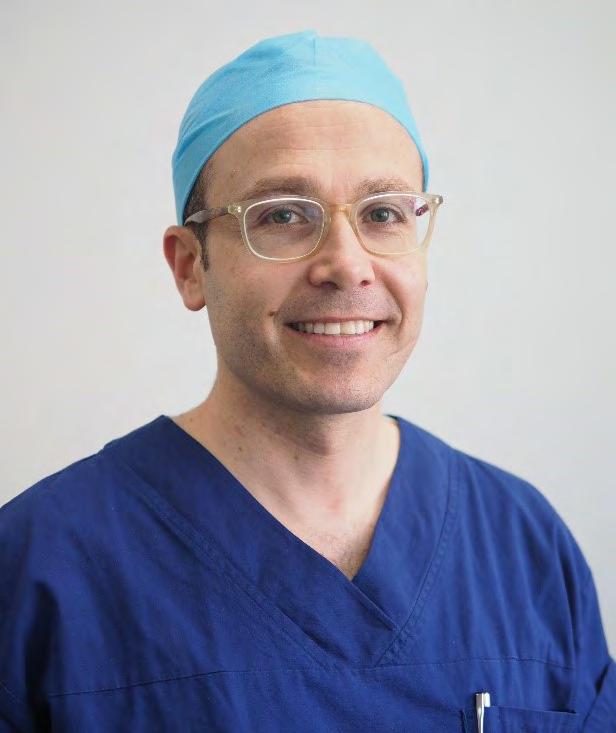
of regular emails and teleconferencing helped to overcome them.
Dr Edwina Moore
Dr Moore is a general surgeon from Melbourne. While I had already finished training and was about to embark on an overseas Fellowship, I was still eager to participate in the RACS mentoring program with a view to making a new friend, gaining perspective on surgical practice posttraining and advice on how to juggle an academic career with motherhood. I was also keen to experience being the mentee, as I was already involved as a mentor with a (medical student) career mentoring program through the University of Tasmania. I think most Fellows would benefit from having a confidante who is attuned to the health system and has some past experience to draw from. Mentoring is not just about fixing problems, but rather offering perspective, helping to make professional introductions and broadening your exposure outside the microcosm of the training network.
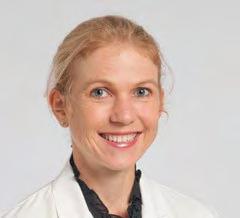
Professor David Fletcher As a College Councillor, I was given the opportunity to participate in the mentoring program. I have had two mentees: one was a Fellow who was recently appointed to a head of department role and was looking for advice and strategies on how to take up the role; the other was a Fellow returning from overseas to an academic appointment looking for advice on how to develop research and involvement in surgical academia. I have always seen mentoring as an increasingly required function of a surgeon as they mature and have life experiences that they can impart to others. It is something I have done for students for over 40 years and to Trainees and Fellows as a head of department for 25 years. It is great to be working in a department surrounded by colleagues who you have advised and supported, and many of whom surpass you.
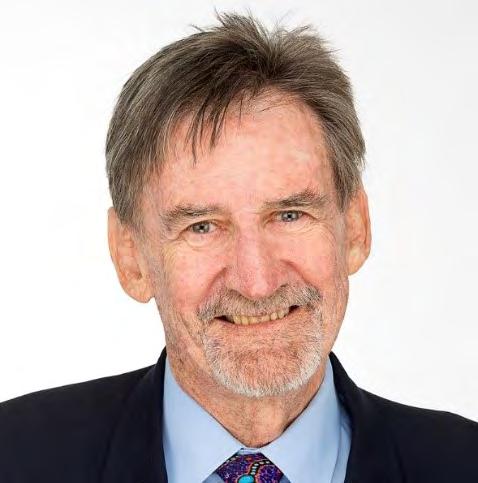
Mr Ming Ho
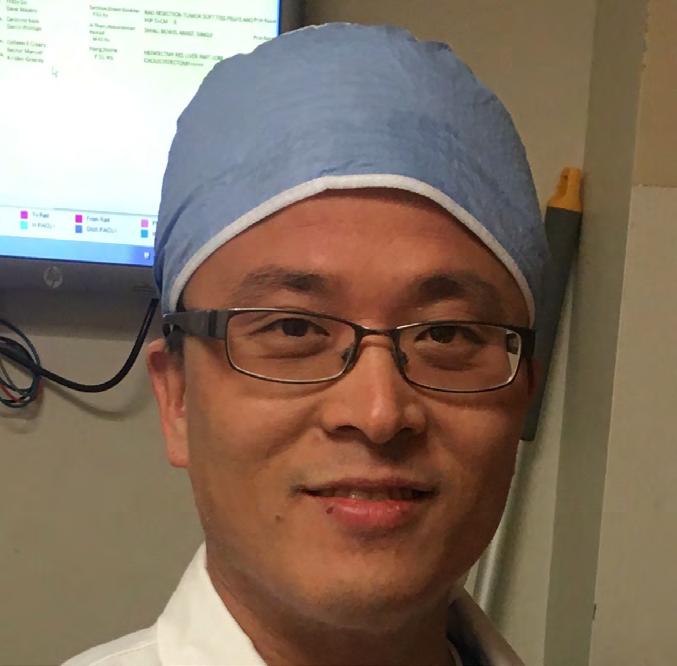
Mr Ming is a general surgeon from Central Queensland. Throughout the program I got good advice from my mentor and I think the advice added another aspect to the virtual experience when I was in difficult situations – surprisingly not clinical, but interpersonal challenges. Keeping in contact was not easy since we both had busy schedules, but emails and quick chats helped! That might be the way to go in the current COVID-19 situation.
Dr Sanjay Adusumilli Dr Adusumilli is a general surgeon from Sydney. The best part of the RACS mentoring program was being able to assist the younger generation of surgeons in pursuing their career aspirations. The younger Fellows are grateful for the advice given and that sense of gratitude provides you with the feeling that you are making a difference. In our catch-ups we spoke about exams, developing a practice, how to obtain a job in the future, research and managing difficult working relationships. Taking part in the program made me feel that the difficulties I faced as a surgeon are experienced by others. It gave me the confidence that many of the challenges we face are shared in common and with support we can all get through them.
Applications to become a mentor are open to all RACS Fellows. To apply to be a mentee you must be a RACS Fellow in your first 10 years of practice. For more information about the 2021 program please contact Molly Mckew at molly.mckew@surgeons. org
